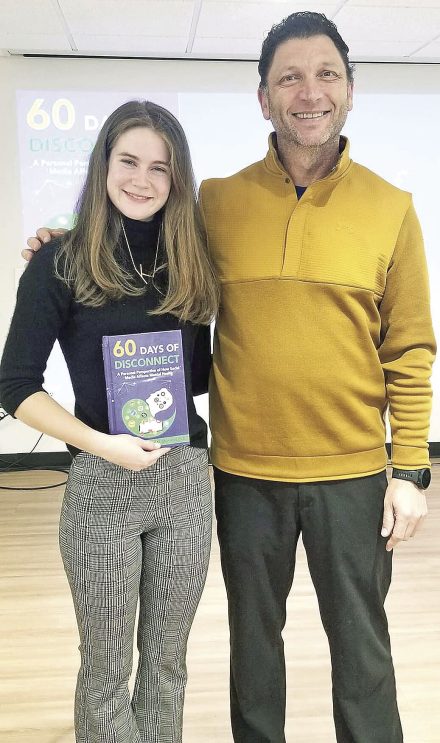Ghandour, an associate professor of psychology, who supported the effort of a local high school student to write "60 Days of Disconnect" about her experience as a teenager disconnecting from social media.
A recently published book highlighting the experience of an Alamance County high school student as she disconnected from social media became possible with the support of Associate Professor of Psychology Bilal Ghandour.

“60 Days to Disconnect” by Keegan Lee, a senior at The Burlington School, and Ghandour came about because of Lee’s passion for mental health and her decision to delete her social media accounts. Lee told Dale Edwards with The Mebane Enterprise, which published an article about Lee’s book, that she reached out to Ghandour to better understand the psychology behind disconnecting with social media. Ghandour’s professional experience is with anxiety disorders and self-harm behaviors.
“He followed me through my journey,” Keegan told Edwards. “I wanted to understand the psychological perspective of why I was feeling what I was feeling. Working with Dr. Ghandour helped me realize that social media addiction is not just an individual thing, but it’s happening universally. With all ages, but especially my generation, because we’re the first generation born into a world of social media.”
The book includes a psychological perspective written by Ghandour as he followed Lee’s journey. Ghandour said that it was great to work with Lee in large part because she was completely transparent with her experience disconnecting from social media. It made the back and forth between her journaling and his responses flow seamlessly, he said.
“The message we would like to get across in this book is how easy it is to develop an obsessive habit of using social media sites because almost everybody is on them, and how it can drain a tremendous amount of psychological and temporal resources if not used in moderation,” Ghandour said. “We need to remember that a smartphone is a technological wonder, not a social one. To truly connect, nothing replaces face-to-face human communication.”
Lee told the Mebane Enterprise that her experience of working with Ghandour and writing the book has boosted her interest in neuroscience and mental health. She plans to pursue a doctorate in psychology. She hopes to hold book-signing events and partner with Ghandour on talks with students at local schools.


